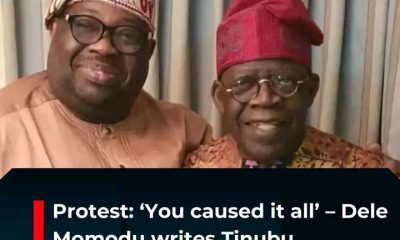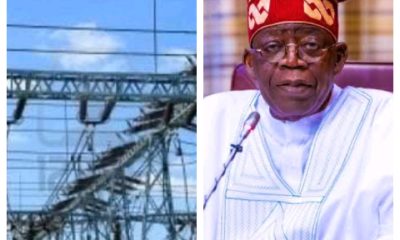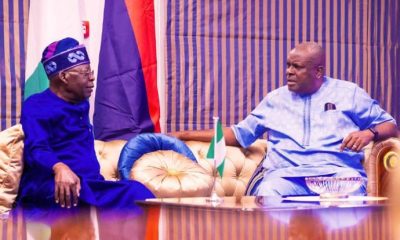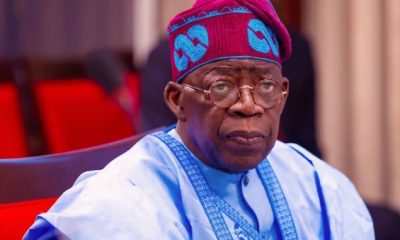Economy
Tinubu’s interventions fail to tackle Nigeria’s economic hardship -DAILY POST
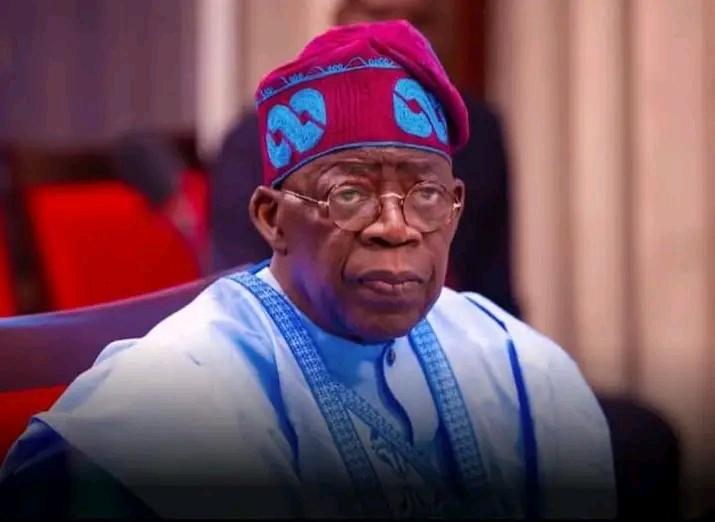
IduwiniVoice
Tinubu’s interventions fail to tackle Nigeria’s economic hardship -DAILY POST
President Bola Ahmed Tinubu’s interventions may have failed to ease the country’s worsening economic hardship in the first half of 2024 despite the government’s Renewed Hope Mantra.
Economists and financial experts disclosed this in separate interviews with DAILY POST.
President Tinubu, a former Lagos State Governor, who celebrated his first anniversary in office on May 29th, 2024, has not found it easy to give Nigerians a vista of hope.
The development comes on the back of the recent approval by the Federal Executive Council for the disbursement of N555 billion to 100,000 families, with N50,000 payment for three months.
Recall that in October 2023, the President also approved the ‘Conditional Cash Transfer’, under the now-suspended minister of Humanitarian Affairs and Poverty Alleviation, Betta Edu.
The scheme, which comes under the $800 million in loan support from the World Bank, was launched on October 17, 2023, by President Bola Tinubu.
Also, as part of the fiscal measure, the federal government recently approved zero tariffs, excise duties, and Value Added Tax on specialized machinery, equipment and pharmaceutical raw materials to bolster local production of essential healthcare products.
Other fiscal measures include a $3.3 billion crude oil-backed prepayment facility from Afreximbank, $2.5 billion World Bank loans to bolster Nigeria’s foreign exchange supply, and efforts by the Presidential Tax and Fiscal Policy Committee to increase taxes.
Despite the interventions, Nigerians have continued to groan over the impact of headline and food inflation which rose to 33.95 percent and 40.66 percent in May, 2024.
The implication is that the purchasing power of Nigerians has dropped in the face of the increasing misery index.
Worse, Nigeria’s debt burden rose to N121.67 trillion at the end of March 2024.
In the 1Quarter of 2024, the country spent $1.12 billion for servicing foreign debt on N3.94 trillion generated revenue in the same period.
This is as Naira weakened to N1508.99 per dollar at the official market on Monday amid several policies announced by the Central Bank of Nigeria; the latest was the discontinuation of the Price Verification System Portal for importers.
Speaking to DAILY POST on Monday, financial expert and the Chief Executive Officer of SD & D Capital Management, Gbolade Idakolo said Tinubu’s policies in the referenced period have not helped to alleviate the hardship on Nigerians.
According to him, welfare policies by the federal and the state governments were yet to be felt by Nigerians.
“My major concern about these measures is the parameters being used to determine those eligible for those grants for three months.
“These welfare policies of the Federal and the state governments have been seen not to get to the intended beneficiaries and the aim is always defeated in the long run.
“I also believe that this measure would not address the hardships being faced by the very poor citizens that these policies are targeted to assist because of continuous high food inflation and skyrocketing cost of living.
“The fiscal policies of Tinubu’s government in the first half of the year has not helped to alleviate the hardship introduced by its monetary policies. This has led to the unbearable situation the country found itself,” he told DAILY POST.
However, Muda Yusuf, the director, Centre for the Promotion of Private Enterprise, CPPE, said the government has carried out a lot of policies but more needs to be done that will impact the generality of Nigerians.
He urged that the government should roll out more fiscal interventions in the agro-allied industry, construction, Iron and steel, and mining sectors.
“There is a lot the government can do via the fiscal policy level. In terms of direct support to the farmers, it is better to do it directly than through the state governments. I think through that, there should be an impact in terms of food production. I hope the state government will commit to this with all sense of sincerity.
“The measure can help the supply side. I am aware that there are also plans to have similar interventions to the real sector.
“The real sector is responsible for Fiscal Policy measures rather than monetary policy. Fiscal policies are more potent in driving production”, he said.
Prof Godwin Oyedokun, a don at Lead City University in Ibadan, said the recent N555 billion cash disbursement approval is a significant fiscal measure aimed at addressing the inflation-induced hardship faced by many Nigerians.
Oyedokun, however, explained that injecting a large sum of money into the economy could exacerbate inflationary pressures if not accompanied by measures to increase supply and stabilize prices.
“The fiscal measures introduced by President Tinubu, including the N555 billion cash transfer program, demonstrate a proactive approach to addressing the immediate economic challenges faced by Nigerians.
“However, the success of these measures depends significantly on the coordination with monetary policies to manage inflation and ensure overall economic stability.
“A holistic approach, combining short-term relief with long-term economic reforms, is essential for addressing the underlying issues causing inflation-induced hardship and achieving sustainable growth,” he told DAILY POST.
Economy
ALIKO DANGOTE IS A TITAN THAT GOD CREATED SPECIALLY FOR MANKIND – FEMI OTEDOLA
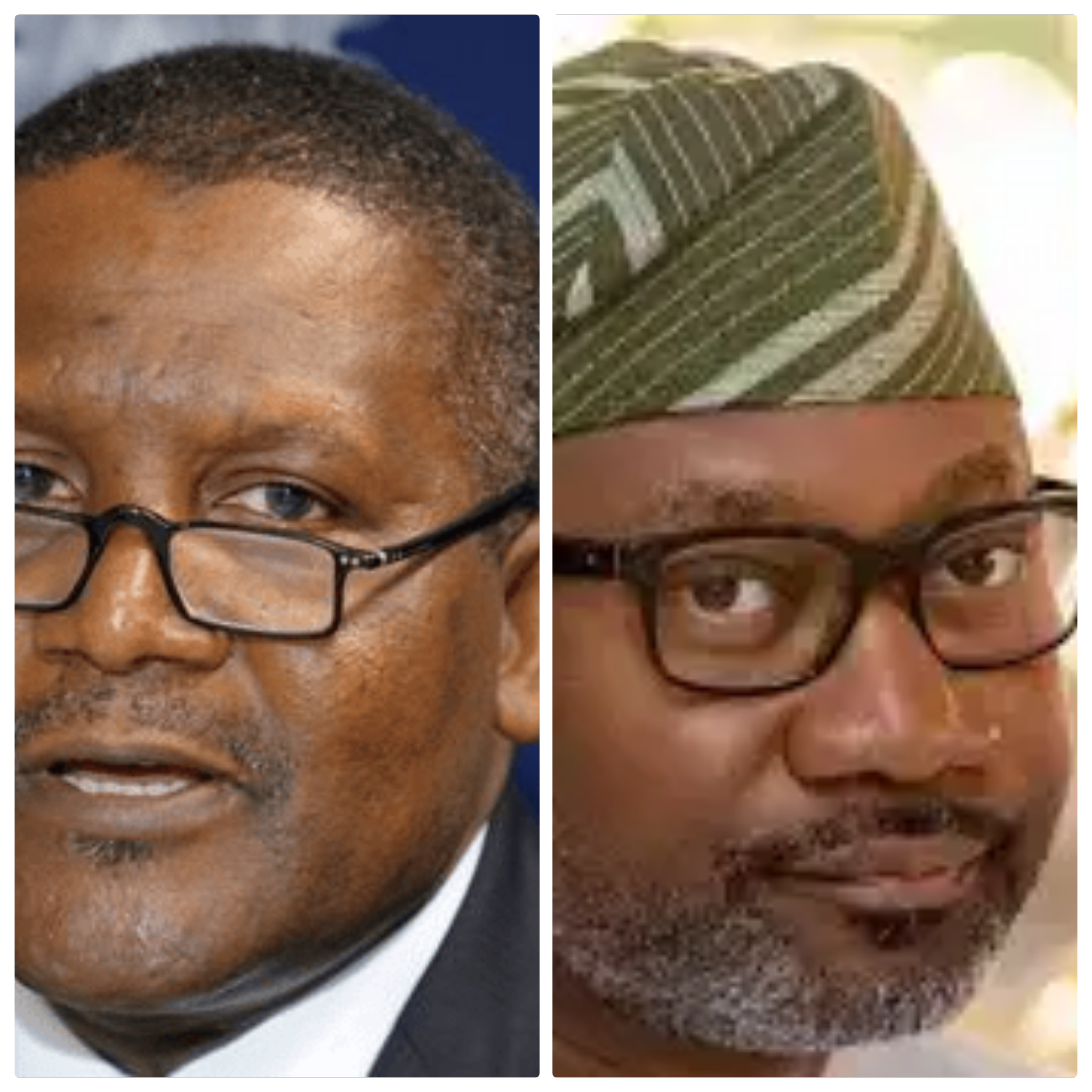
ALIKO DANGOTE IS A TITAN THAT GOD CREATED SPECIALLY FOR MANKIND – FEMI OTEDOLA
By Tobouke JEMINE
Following the recent dispute between the Dangote Refinery and some regulatory agencies, the Nigerian business mogul , philanthropist, former chairman of Forte Oil PLC, and current executive chairman of Geregu Power PLC, has punched in in defence of Aliko Dangote.
Read his reaction below:
My brother, the Visionary, has built the largest single train refinery in the world, not in Kano, but in Lagos State. He is the owner of the second-largest sugar refinery in the world, also in Lagos State, and the largest cement factory in the world, not in Kano, but in Kogi State.
Additionally, he has established one of the second-largest fertilizer plants in the world, soon to surpass the biggest one in Qatar, also in Lagos State. Furthermore, he has built a fertilizer plant in Lagos that already exports globally. Aliko Dangote is a titan that God created specially for mankind.
Aliko Dangote is also the largest private sector employer of labor in the country, and his companies are among the largest taxpayers. In fact, the Dangote Group often pays more in taxes than the top banks combined.
If not for him, we would still be importing cement. His contributions extend beyond industrial facilities to critical infrastructure, having built major roads such as the Apapa Oshodi-Owonrosoki Express Road, Wharf Road, and the Obajana-Kabba Road.
Countries in the nascent stages of industrialization require visionary leaders. This is why it’s no surprise that the United States was built by the vision and tenacity of a few remarkable individuals—Cornelius Vanderbilt, John D. Rockefeller, Andrew Carnegie, J.P. Morgan, and Henry Ford—THE MEN WHO BUILT America’s industrial landscape.
These men left the world without these assets but left behind a legacy that has kept their country thriving generation after generation. Their contributions were immortalized not in the material wealth they amassed but in the enduring institutions and industries they established. These visionaries were also supported by their government, which recognized the importance of fostering local champions.
Similarly, today’s tech giants like Microsoft and Tesla received substantial support from the US government. For example, in January 2010, the Department of Energy issued a $465 million loan to Tesla Motors to produce specially designed, all-electric plug-in vehicles and to develop a manufacturing facility in Fremont, California to produce battery packs, electric motors, and other powertrain components for powering these innovative vehicles. This initiative is part of broader efforts, such as the federal EV-charging program supported by the infrastructure law known as the National Electric Vehicle Infrastructure program, or NEVI.
In India, the government has been instrumental in supporting business titans like Gautam Adani and Mukesh Ambani. Their companies have received significant backing to grow and expand, contributing substantially to India’s economic growth and global business footprint.
There are also records of emerging market countries like Vietnam, South Africa, Brazil, and China where their governments have supported local businesses to jump-start industrialization. In Vietnam, the government has provided various incentives to tech companies, fostering a rapidly growing technology sector.
In South Africa, government support for the mining industry has been crucial in maintaining its global competitiveness. Brazil has seen substantial government investment in its agricultural sector, transforming it into one of the world’s leading food exporters. In China, government backing for companies like Huawei and Alibaba has propelled them to global leadership in technology and e-commerce.
In Nigeria, we have our own titans, and it is imperative that we recognize and support them. Aliko Dangote has broken every boundary in worldwide business and industry. His contributions are not just a testament to his brilliance but a beacon of what is possible when vision meets opportunity. Supporting local champions like Dangote is crucial for our national development and economic independence. Let us continue to foster and support these visionaries who drive our nation’s progress…
Economy
REPS CALL FOR SUSPENSION OF NMDPRA BOSS OVER ALLEGATIONS AGAINST DANGOTE REFINERY
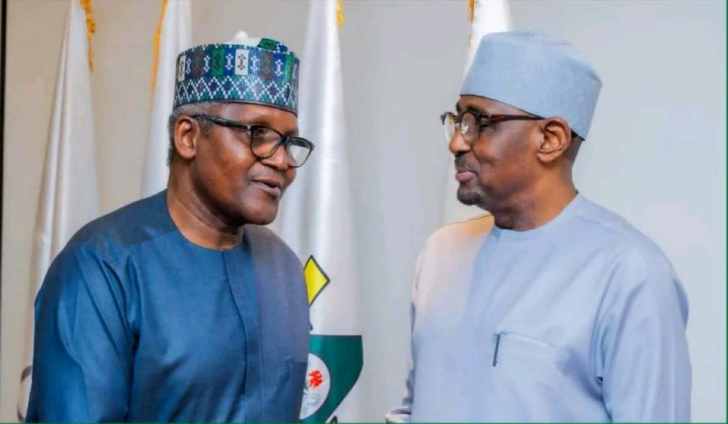
REPS CALL FOR SUSPENSION OF NMDPRA BOSS OVER ALLEGATIONS AGAINST DANGOTE REFINERY
By Tobouke JEMINE
The House of Representatives has called for the suspension of Farouk Ahmed, CEO of the Nigerian Midstream and Downstream Petroleum Regulatory Authority (NMDPRA), pending an investigation into his statements about Dangote Refinery.
This decision follows a motion by Esosa Iyawe, representing Esosa Federal Constituency, Edo State. Iyawe highlighted concerns over fuel quality in the Nigerian market, emphasizing the impact of high sulphur content on engines and pollution.
Contrary to Farouk’s claims that Dangote’s diesel is inferior with high sulphur content, tests showed Dangote’s diesel has significantly lower sulphur levels compared to imported diesel.
Lawmakers criticized Farouk’s statements and are investigating his allegations and the presence of middlemen in crude trading.
Economy
CBN TO BANKS: Transfer Funds in Dormant Accounts/ Unclaimed Balances to Us
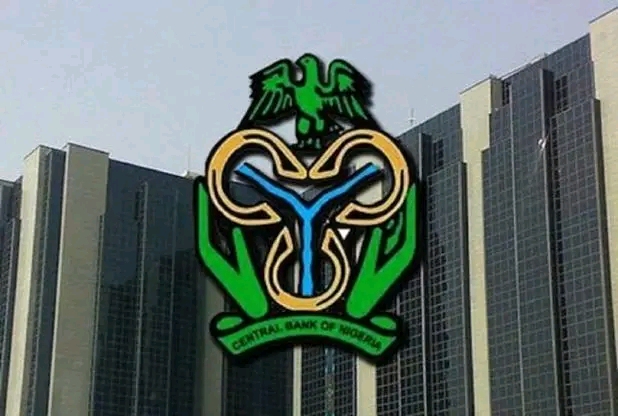
IduwiniVoice
By Tobouke JEMINE
The Central Bank of Nigeria (CBN) has directed all banks and other financial institutions to transfer funds in all dormant accounts to the apex bank.
A circular issued by CBN Ag. Director of Financial Policy and Regulations, Mr. John Onoja, yester night revealed that accounts that have remained untouched for 10 years and above would be affected.
It said, “The provisions of this guideline shall apply to all financial institutions under the purview of the Central Bank of Nigeria.”
According to the circular, the objectives of this move, among others, were to identify unclaimed balances in dormant accounts, and financial assets with a aim to reuniting them with their beneficial owners; keep the funds in trust for the beneficial owners; standardize the management of dormant accounts and unclaimed balances, and financial assets; establish a standard procedure for reclaiming warehoused funds.
It added, “Eligible accounts are dormant account balances that have remained with the FIs for a period of ten (10) years and beyond.
“Eligible dormant accounts/unclaimed balances and other financial assets shall include: current, savings, and term deposits in local currency; Domiciliary accounts; deposits towards the purchase of shares and mutual investments; and prepaid card accounts and wallets.
“Government Owned Accounts; Proceeds of uncleared and unpresented financial instruments belonging to customers or non-customers of FIs; Unclaimed salaries and wages, commissions, and bonuses; Proceeds of stale local and/or foreign currency drafts not presented for payment by beneficiaries; Funds received from a correspondent bank without sufficient details as to the rightful beneficiary and/or a recall of funds made to the remitting bank to which the Nigerian bank account had not been debited.
“A judgment debt for which the judgment creditor has not claimed the amount of judgment award; and any other deposits or financial assets that may be designated by CBN.”
According to the CBN, the following classes of dormant accounts/financial assets are exempted: Accounts that are subject of litigation; A judgment debt for which the judgment creditor has not claimed the amount of judgment award and the case is still active in court; Accounts under investigation by a regulatory authority or law enforcement agency; and encumbered accounts, including, but not limited to, collateral and loans.
© Source: 2024 Vanguard Media Limited, Nigeria

